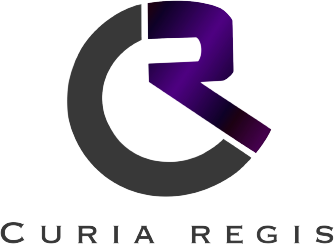There have been an array of new circulars, guidelines and announcements from the Monetary Authority of Singapore (MAS) recently, relating to the improvement of Anti-Money Laundering/ Countering the Financing of Terrorism (AML/CFT) controls for Regulated Financial Institutions (FIs) in Singapore.
One of the recent circulars released on 26 July 2024 places a strong emphasis on the understanding of the establishment of the Sources of Wealth (SOW) of customers and their Beneficial Owners (BOs). The circular documents the importance of firstly, understanding the nature of the SOW of the customer, and thereafter determining a sufficiently independent manner of corroborating SOW. The need for corroboration may differ based on different customer types and their varying risk profiles. Generally though, the market standard is that higher risk customers would justify the need for more detailed corroboration of their SOW.
Independent SOW corroboration may include greater scrutiny of the customer’s overall background, profile, and profession and history. This may be obtained from publicly available information (where applicable) as well as information that the FIs may have otherwise obtained on its own accord. Additionally, FIs should consider the following risk principles when applying the guidance for establishing SOW of customers and their BOs:
Materiality
FIs should gather detailed information on a customer’s SOW in order to identify and focus on verifying any significant or high risk SOW. To a certain extent, accuracy might be limited as it is not possible to verify every detail especially for older wealth without proper documentation. In such events, FIs should understand when it is material to take into accord a customer’s whole SOW, or instead to focus on the committed amount by said customer.
Prudence
After identifying the material SOW, FIs should obtain reliable sources of information such as Audited Reports or documents from independent Third Parties (e.g., tax accountants, Brokers) for verification purposes. FIs that use certain benchmarks and assumptions for SOW assessments should review their basis of doing so regularly and document the relevance of said approach, in accordance with the customer’s risk profile. The benchmarks and assumptions used should be able to assist in the authentication of a customer’s SOW and not used to justify suspicious SOWs.
Relevance
FIs should seek to obtain relevant evidence and exercise reasonable judgement on the determination of essential documents that can be used to reliably assess the customer’s SOW. In the case of unavailable documents for older wealth, FIs can utilise independent sources such as third party expertise or credible public sources as alternative sources for assessment instead of solely relying on documents provided by the customer.
A customer’s SOW can be derived from multiple sources, and is normally determined based on the SOW declaration provided by the customer. In some instances, SOW can be derived from the customer’s Source of Funds information, such as the following:
- Employment Income – this could include salaries, bonuses, or other compensation provided as part of the customer’s employment arrangement.
Corroborative documentation here should show details such as the customer’s income in a period and/or their role in the Company they are employed under, amongst others.
- Investment Income – this could include dividends from shares, interest from fixed deposits, or capital gains from sale of investments.
Corroborative documentation here should show details such as a buy/sell price of the investment product, or the interest/dividend amount gained from the investment held in the customer’s name, amongst others
- Inheritance – this could include assets inherited from family members or relatives.
Corroborative documentation here should show details such as the original ownership of the estate/assets inherited, the size of the estate/assets inherited, the relationship between the parties involved, and the timeline as to when these assets were inherited by the customer, amongst others.
The above mentioned information provides exemplary guidance (which is by no means exhaustive) for FIs to follow when corroborating SOW of their customers. There are various other scenarios and documentary requirements that may apply, for more complex circumstances involving a FI’s customers.
If you are unsure as to how to handle such matters, feel free to reach out to us at Curia Regis. Our team is able to offer comprehensive services to assist you in navigating the necessary requirements and documentation required, for you to satisfy your obligations as a Regulated Financial Institution in Singapore accordingly.
Contact us at admin@thecuriaregis.com to know more and follow our LinkedIn page https://uk.linkedin.com/company/curiaregis for updates in the regulatory space.

